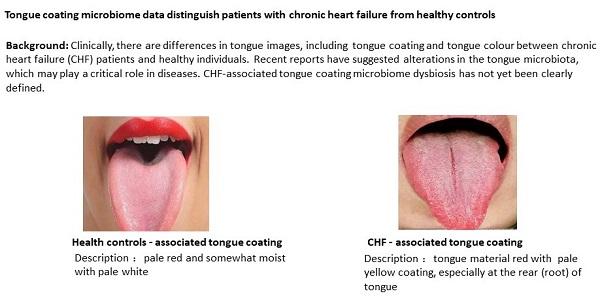Past study has shown that microorganisms in the tongue coating could distinguish patients with pancreatic cancer from healthy people. This is early to diagnose pancreatic cancer.
Furthermore, since specific microorganisms are connected with immunity, scientists proposed that the microbial imbalance could stimulate inflammation and disease. Inflammation and the immune response additionally assume a job in heart failure.
A new study presented today on HFA Discoveries now has suggested that tongue microbes provide a window to heart health. This study investigated the composition of the tongue microbiome in participants with and without chronic heart failure.
The study enrolled 42 patients in hospital with chronic heart failure and 28 healthy controls. None of the participants had an oral, tongue, or dental disease/ had suffered an upper respiratory tract infection in the past week/ had used antibiotics and immunosuppressants in the past week/ or were pregnant or lactating.
Stainless steel spoons were used to take samples of the tongue coating in the morning before participants had brushed their teeth or eaten breakfast.

Scientists used a technique called 16S rRNA gene sequencing to identify bacteria in the samples. They recognized that patients with heart failure shared the same types of microorganisms in their tongue coating. Healthy people also shared the same microbes. There was no overlap in bacterial content between the two groups.
At the genus level, five categories of bacteria distinguished heart failure patients from healthy people with an area under the curve (AUC) of 0.84 (where 1.0 is a 100% accurate prediction and 0.5 is a random finding).
Also, there was a downward trend in levels of Eubacterium and Solobacterium with increasingly advanced heart failure.
Study author Dr. Tianhui Yuan, No.1 Hospital of Guangzhou University of Chinese Medicine, said, “The tongues of patients with chronic heart failure look different to those of healthy people. Normal tongues are pale red with a pale white coating. Heart failure patients have a redder tongue with a yellow coating, and the appearance changes as the disease become more advanced.”
“More research is needed, but our results suggest that tongue microbes, which are easy to obtain, could assist with wide-scale screening, diagnosis, and long-term monitoring of heart failure. The underlying mechanisms connecting microorganisms in the tongue coating with heart function deserve further study.”
